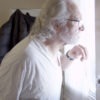
Filmmaking | How to Be a... | How To's
How to Be a… Researcher
Written by Emily Jansen | Posted by: Anonymous
If you like exploring new territory, research may be just the job for you. A good researcher is an integral part of any production team. Yet, when was the last time you watched an outstanding film and said to yourself afterwards, "That was an incredible piece of work — I wonder who researched it"? I would venture to guess that for most people this is not the first question that comes to mind. It is obvious that a producer, director, and editor play significant roles in shaping a film, which is why they tend to receive the most prolific accolades. On the other hand, a good researcher may just be the unsung hero of a well-crafted and thought-provoking non-fiction film.
To find out more about a researcher’s role in the production process, NewEnglandFilm.com spoke with someone who knows quite a bit about quality programming — NOVA’s Senior Science Editor, Evan Hadingham. Unlike many people in this business who have always wanted to make films, Evan started out writing books on archeology and pre-history. In 1986, he applied to a fellowship program that sought to take print science writers and give them 11 months of training in film and television. Apparently, the program struck a chord with Evan because 15 years later he is using his talents on one of the most respected science programs on television. Researching is one of the foremost aspects of his job, and here are a few insider tips he offers on how to be a researcher.
Have wide interests.
Be curious. Subject matter can vary widely when you work as a researcher. Quite simply, the broader your interests are the more skills you will be bringing to your work and the more likely you will enjoy your research. In Evan’s case, his training as a writer endowed him with journalistic skills that are essential to his job as content editor. Just as research, story-telling, and critical thinking were essential as a writer, they are also essential for a film researcher.
Be critical.
Often a researcher is given the task of finding out everything there is to know about a certain subject. A good researcher must be able to sort through information and determine which details are relevant and which are not. This is a lofty task. Being critical also requires an ability to wade through varying interpretations of material in search of those resources that are the least biased. The researcher then must parlay this information to the rest of the production team, in some ways determining what the producer, writer, and director know about a subject. Processing so much information and presenting it unerringly requires excellent critical thinking skills.
Be self-critical.
As Evan put it, part of being critical is being self-critical. Recognizing biases in other people’s writings and opinions is important, but recognizing one’s own biases is just as important. A good researcher needs to reflect upon his/her own biases, and to be open-minded enough to change his/her point of view if the evidence warrants it.
Strive for complete journalistic accuracy and balance.
While NOVA believes in putting significant emphasis on the editorial end of production, not every production company devotes enough time to the research phase of a project. Unfortunately, this often results in factual inaccuracies. To prevent inaccuracies and maintain the highest standard of journalistic integrity, it is imperative that facts are checked and re-checked. Evan refers to this aspect of his position as "good cop, bad cop on content." A capable researcher/content editor asks tough questions about how and where facts were obtained. If necessary, a knowledgeable outside party should be consulted to verify the accuracy of information contained within a script. If you are running on a limited time schedule for research, quickly try to determine who seems to have the most authoritative and least prejudiced view, and then find them and their resources.
Know your sources.
For nearly every researcher, a research trip now begins on your desktop. The Internet has become a treasure trove of information making research faster and easier, and academic resources more accessible. Evan makes use of the Internet primarily by drawing on print stories from reputable science magazines whose back issues are available on-line. "Lexus-Nexus" is another valuable research tool. Be warned, however, that not all material on the web — or anywhere else for that matter — can be trusted. Be a skeptical researcher. In the end, you will at times have to make a judgment call on a source’s legitimacy. Evan’s advice: make sure to get more than one account of everything.
Finally… Get out there.
As Evan emphasized in our interview, research is the ultimate entry point into the film world. You don’t have to be a writer, a filmmaker, a historian, a scientist, etc., to be a researcher. You do, however, have to have a good sampling of some of the qualities above and an abundance of enthusiasm and motivation. According to Evan, one of the best interns he ever had at NOVA knew little-to-nothing about filmmaking but had intelligence and eagerness that made her exceptional. Don’t feel that you have to limit yourself to film research for experience, rather look beyond film for other outlets. Get experience in writing and researching for print, the Web, and in any other areas you find interesting. A wide-range of talents is crucial to survival in the business.
If you are looking for a way to get some firsthand experience in the film world, or, if you are someone who enjoys the editorial and storytelling function but are not interested in production, research might be the right place for you. Either way, as a researcher you will have a major impact on the story a film tells and will be assisting in communicating knowledge to a much wider audience.
Though a film researcher may not be recognized with the same acclaim that other members of a production team tend to receive, Evan assures me that the best producers understand the critical role a researcher plays in the success of a film. Ultimately, though, research is something that should be rewarding for the researcher. "Research and producing is like a journey of discovery," according to Evan.
Evan Hadingham coordinates the intern program at NOVA. He encourages anyone who is interested in learning more about internship opportunities with NOVA to send a resume and cover letter to Human Resources at WGBH. More details about the internship are available online at http://main.wgbh.org/wgbh/jobs/internships/novaintern.html.










